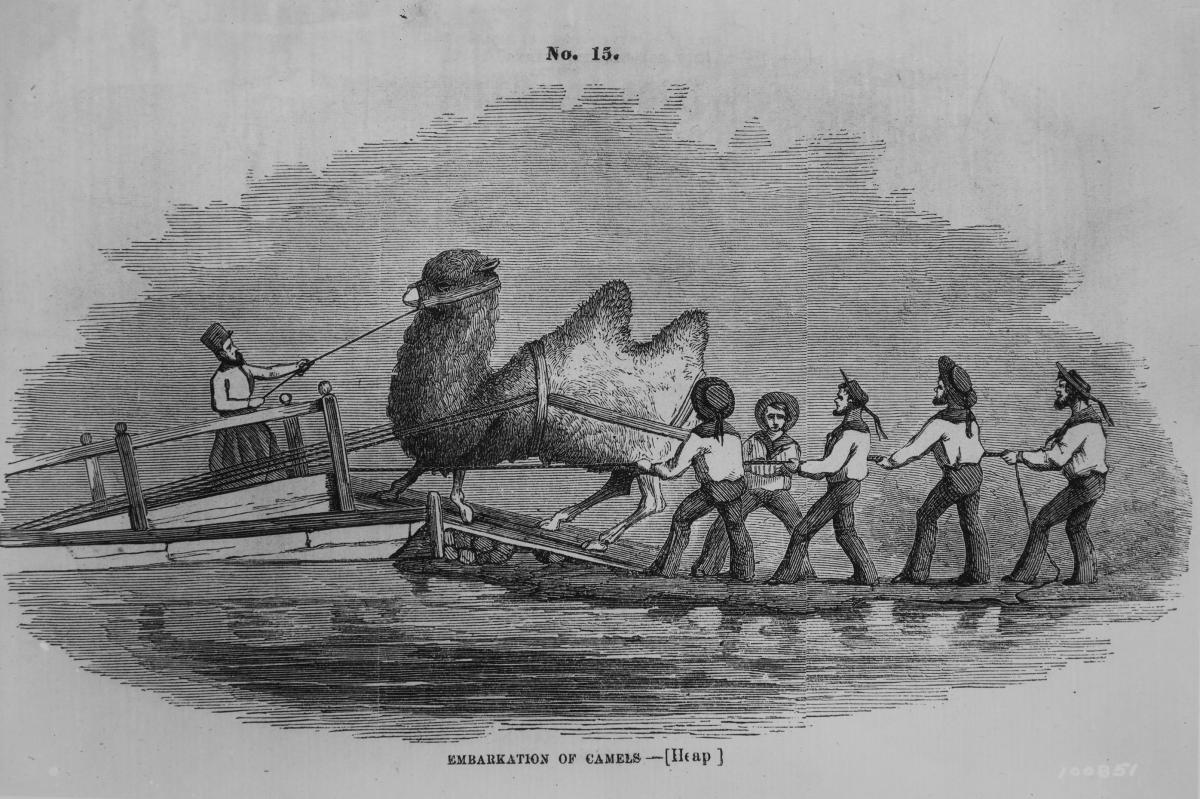February 15th, 1856
LT David Dixon Porter leaves Smyrna, Syria for
Indianola, Texas with 21 camels on board
Just five years before the outbreak of the Civil War, Lieutenant David Dixon Porter received unusual orders from the Secretary of War at the time, Jefferson Davis, to travel to the Mediterranean on the USS Supply. There, he was required to join Major Henry C. Wayne, then the Quartermaster of the Army, and aid him in finding and purchasing camels for experimental use in the American desert. The Supply had already traveled to the Mediterranean before, on Lieutenant William Lynch's expedition to the Dead Sea, where Lynch himself had encountered camels, and managed to substitute them for draught-horses. Lynch's interactions with these camels, and his lengthy descriptions of these creatures, no doubt inspired Porter's unique assignment. Proceedings describes the history of Lieutenant Porter's travels, as well as the fate of the camels he acquired.
Supply's next assignment was perhaps the most unusual duty of her career.
The ship, commanded by Lt. David Dixon Porter, who would win fame in the Civil War, departed New York on 4 June 1855 and headed for the Mediterranean to obtain camels to be returned to the United States. Secretary of War Jefferson Davis, who was extremely interested in developing the territory recently acquired by Mexico, had arranged for the expedition to obtain the animals for experimental use by the Army on the American desert west of the Rockies.
The ship reached Smyrna on 30 January 1856, loaded 21 camels, and sailed on 15 February for the Gulf of Mexico. Porter delivered the animals to Indianola, Tex., in May. The ship had reached the halfway point on this curious mission for she was soon on her way back to the Levant for another load of camels which she transferred to the Suwanee in the Mississippi early in February 1857.
. . . a camel post was established at Camp Verde, Texas; and from that base, loaded camel caravans made practice marches back and forth across the plains and deserts of Texas, with highly successful results. But then came the Civil War. General Twiggs, with suspicious haste, surrendered all the posts and forces in Texas, including Camp Verde, to the Confederates. The camels were turned loose; and for years afterwards, wandered, in a dwindling herd, through the desolate regions of Southwest. Perhaps there may still be a few lonely survivors left alive, in some remote corner of the American desert—who can say?




